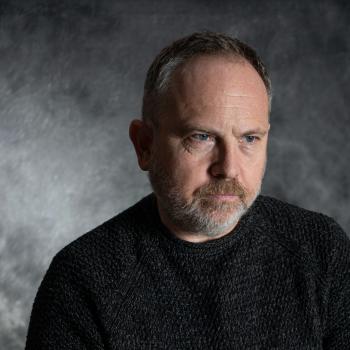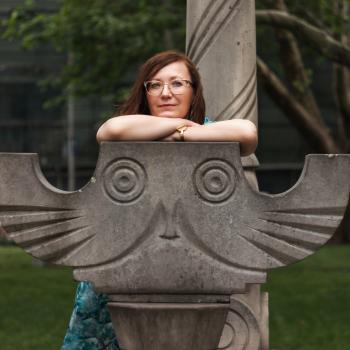Here in the US, once you hit the age of 50, you begin receiving mailings inviting you to join an organization called the AARP. Otherwise known as the American Association of Retired Persons.
I was reminded of this the other day by Connie Bowman, as well as the initial negative reaction most of us have to these mailings. We toss them immediately in the trash—but every few weeks they keep on coming, constant reminders that we are no longer as young as we think we are, that we’re being invited into a group we associate with “old people.”
Welcome to the Third Stage of Life.
You can look at life as broken up into three stages. If we are fortunate enough to reach the US life expectancy age of 78, each stage is then comprised of about 26 years. When we get to age 52, we are entering the third and final phase of our life. (A side-note: at 52, I became a proud card-carrying member of the AARP.)
The third stage of life is a topic discussed by Daisaku Ikeda in his book Unlocking the Mysteries of Birth & Death, A Buddhist View of Life. The author looks at how we can get the most out of this final third of life and offers us a pointed reminder:
How much enjoyment you get out of this stage depends on your outlook on life.
Ikeda tells us we can look at our advancing age as “a descending path to oblivion.” Or we can look at it as a period in which we can live rich and full lives, “attain our goals and bring our lives to a rewarding, satisfying completion.”
Now one of the keys to aging gracefully as called out by Ikeda is to “value something in our hearts besides prestige and social position.” In other words, it’s time to let go of the upward striving that’s common to Americans. No more upgrading your possessions or trying to get ahead. It’s time to downscale and realign your goals.
For some, this is easier said than done. The author points out that aging gracefully can in fact be more difficult than dying. He includes a poignant quote from Dr. Norman Cousins to prove his point:
Death is not the greatest tragedy that befalls us in life. What is far more tragic is for an important part of our selves to die while one is still alive. There is nothing more terrifying than this. What is important is to accomplish something in life.
This means we need to find purpose and meaning in our lives, something of value we can attach ourselves to in our remaining years. I believe there are three “buckets” your purpose can fall into and you may find there are two, or even three, you can pursue:
- If you can help those in need, volunteer.
- If you have knowledge to share with others, teach.
- If you are creative, then write, paint, weave, sculpt, etc.
To that last point, creativity comes in many forms. I have a friend with a green thumb and each year he cultivates the most amazing garden, for his own enjoyment and the pleasure of friends and relatives who visit.
Ikeda points out that there are 4 keys to staying on track with our goals after 50.
They represent ways to remain active, vibrant members of society and all are backed by scientific research. I’ve further elaborated on his four points below and added a fifth because I know of its great importance to leading a full life.
- Stay socially involved. Those who withdraw from society, deteriorate more rapidly. Greet your neighbors, gather with friends, stay active in your community.
- Be mentally active. Continue to pursue intellectual interests. Engage in stimulating activities like chess, bridge or learning a foreign language. Read challenging books.
- Have a flexible personality. Be willing to try and experience new things. Keep your mind and options open.
- Keep a sense of humor. A positive mental outlook accompanied by a life that includes laughter can help the secretion of endorphins, activating the feeling of happiness.
- Keep moving. Run, walk, jog, bike, swim or attend exercise classes. Find a way to keep active, to keep the body moving in some way, each and every day.
Are you afraid of death? Ikeda reminds us that “death is inevitable, so it makes sense to view death positively and as the point of departure for a new life. Realize that life is eternal.” In other words, the body may die, but the soul lives on.
A key is to stay engaged in the now, the present moment. If we make the most of these moments, we will be able to look back at a life well spent. In the words of Ikeda:
By living our lives to the fullest, we can bring our lives to a magnificent close.


















